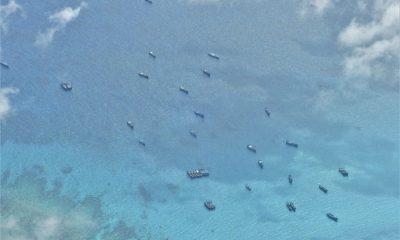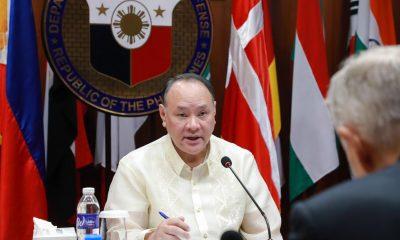Breaking
Trauma and stigma face females rescued from Boko Haram
YOLA, Nigeria — The taunts wouldn’t stop. “Boko Haram wives,” the schoolgirls were called because they had been briefly held by Nigeria’s Islamic extremists before escaping. The teasing was so relentless that some of the Chibok girls left their town and families.
Their plight does not bode well for hundreds of girls and women recently rescued from months of captivity by Boko Haram, including dozens who are pregnant. After enduring captivity by the militants, the females may now face stigma from their communities.
“The most important thing is to restore their dignity,” the executive director of the United Nations Population Fund, Babatunde Osotimehin, told The Associated Press in a telephone interview from his office in New York.
“When you have been in captivity against your will, and God knows whatever they have done to them, some of them will have been violated, some raped, food insecure … We need to take them, work with them and bring them back to the reality of their lives,” said Osotimehin, who is Nigerian.
His agency is providing the women and girls with intense psychosocial counseling and medical care for reproductive and maternal health. It is also encouraging communities to allow the girls to return in peace.
That will be a challenge, going by comments made last week by Gov. Kashim Shettima of Borno, the home state of Boko Haram and the one most affected by the nearly 6-year-old Islamic uprising that has killed more than 12,000 people and forced more than 1.5 million from their homes.
The governor said he feared that girls and women raped and made pregnant by the extremists could be breeding a new generation of terrorists.
Shettima called for a special monitoring program of the mothers to identify paternity because he said the militants had deliberately impregnated them so they would give birth to future insurgents.
“I am seriously worried with the fact that most women tend to hate and abandon children they deliver from rape. Now, the problem is that these children could go to the streets unattended to, they then lack access to food, health care and education. The result is that they could indeed inherit their fathers’ (ideology) somehow,” Shettima told government officials, according to the Nigerian press.
Such statements from a man of Shettima’s standing are “very unfortunate” and would reinforce the very stigma he says he wants to avoid, said Human Rights Watch researcher Mausi Segun.
Segun has interviewed many females who escaped from Boko Haram and described their experiences as “very traumatizing and horrifying.”
The mass kidnapping of nearly 300 students who were writing science exams at a boarding school in the town of Chibok a year ago brought Boko Haram to the attention of the world and elicited international outrage. The extremists abducted a hundreds more in their campaign across northeastern Nigeria.
The stigma of Boko Haram has tainted girls who escaped their captors.
Segun described the experience of some of “the Chibok girls,” as they have come to be known, who escaped in the first couple of days of their abductions. Some got away as they were being transported in open trucks by grabbing the branches of low hanging trees.
Instead of being admired for their bravery, some of those “who had escaped were being called Boko Haram wives,” said Segun. After speaking to one of the girls, Segun “got the sense from her that it deeply, deeply shamed her and her companions … they were being discriminated against because of close contact with Boko Haram and stigmatized,” Segun said.
She said some of those girls have left Chibok and are living with relatives or supportive family friends elsewhere. “These girls weren’t even touched (raped),” said Segun, “but Boko Haram is so despised that anyone identified with the group shares some of that label, the slur.”
Associated Press writers Haruna Umar in Maiduguri, Nigeria and Ibrahim Abdulaziz in Yola contributed to this story.






















